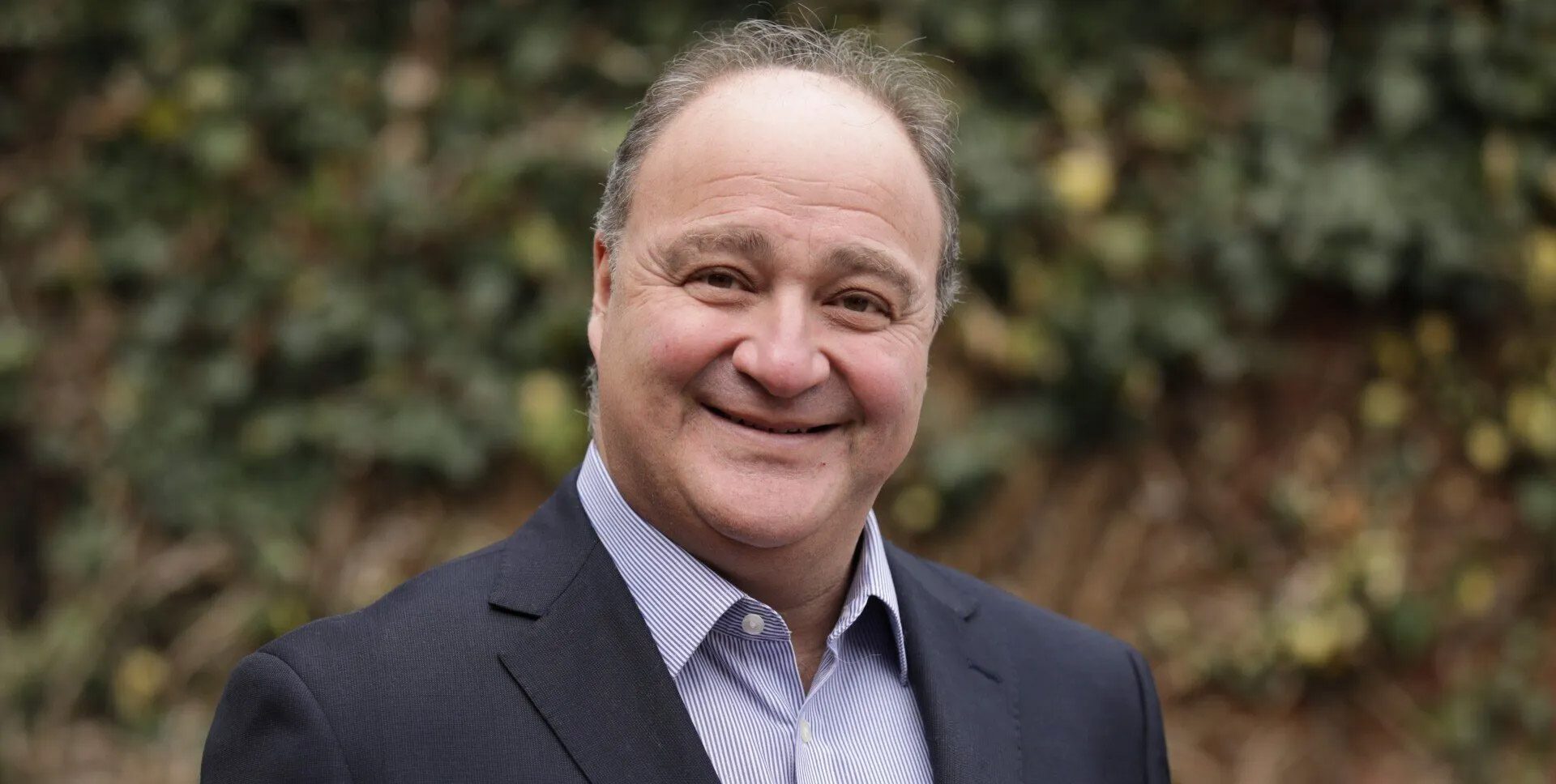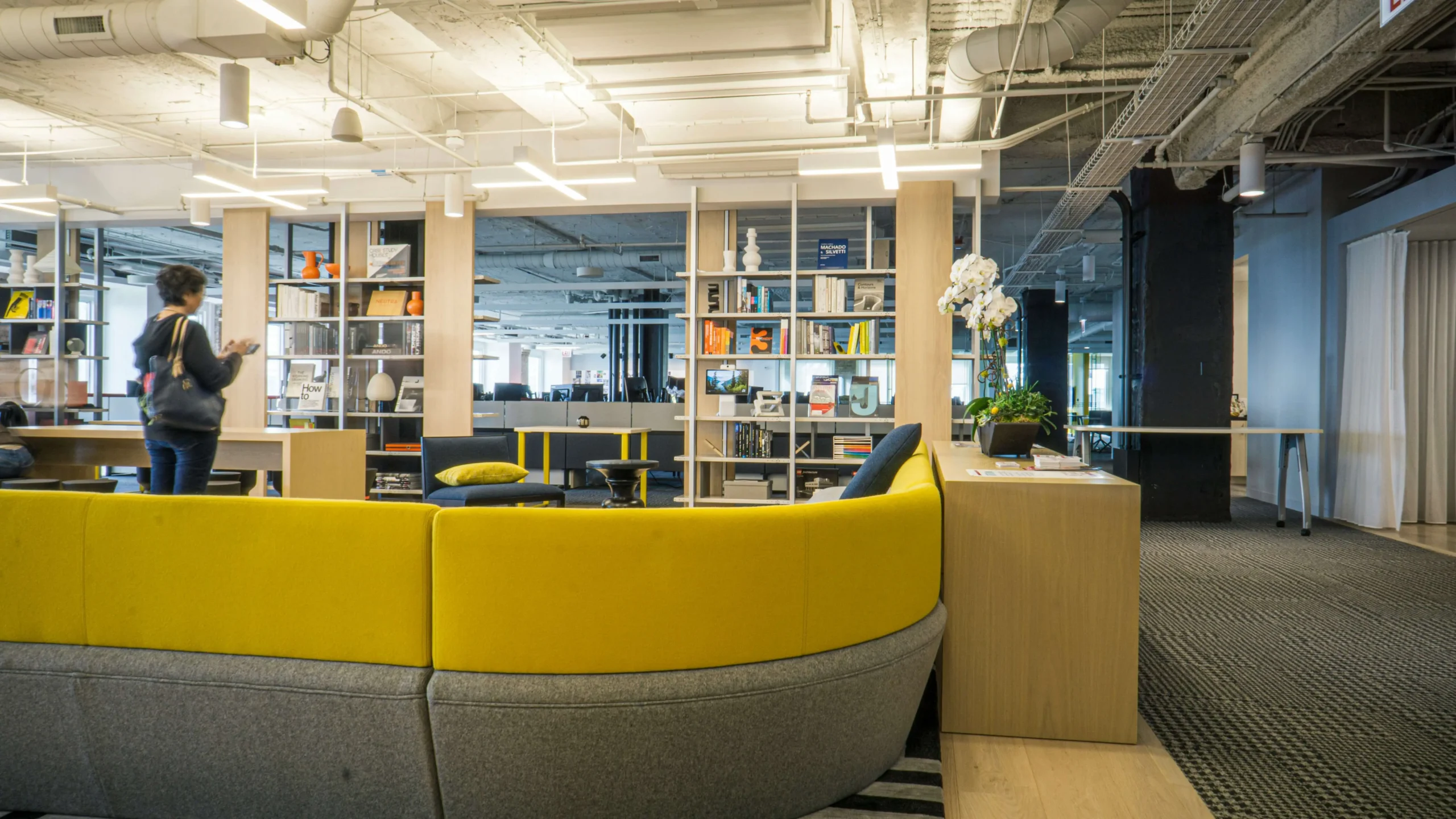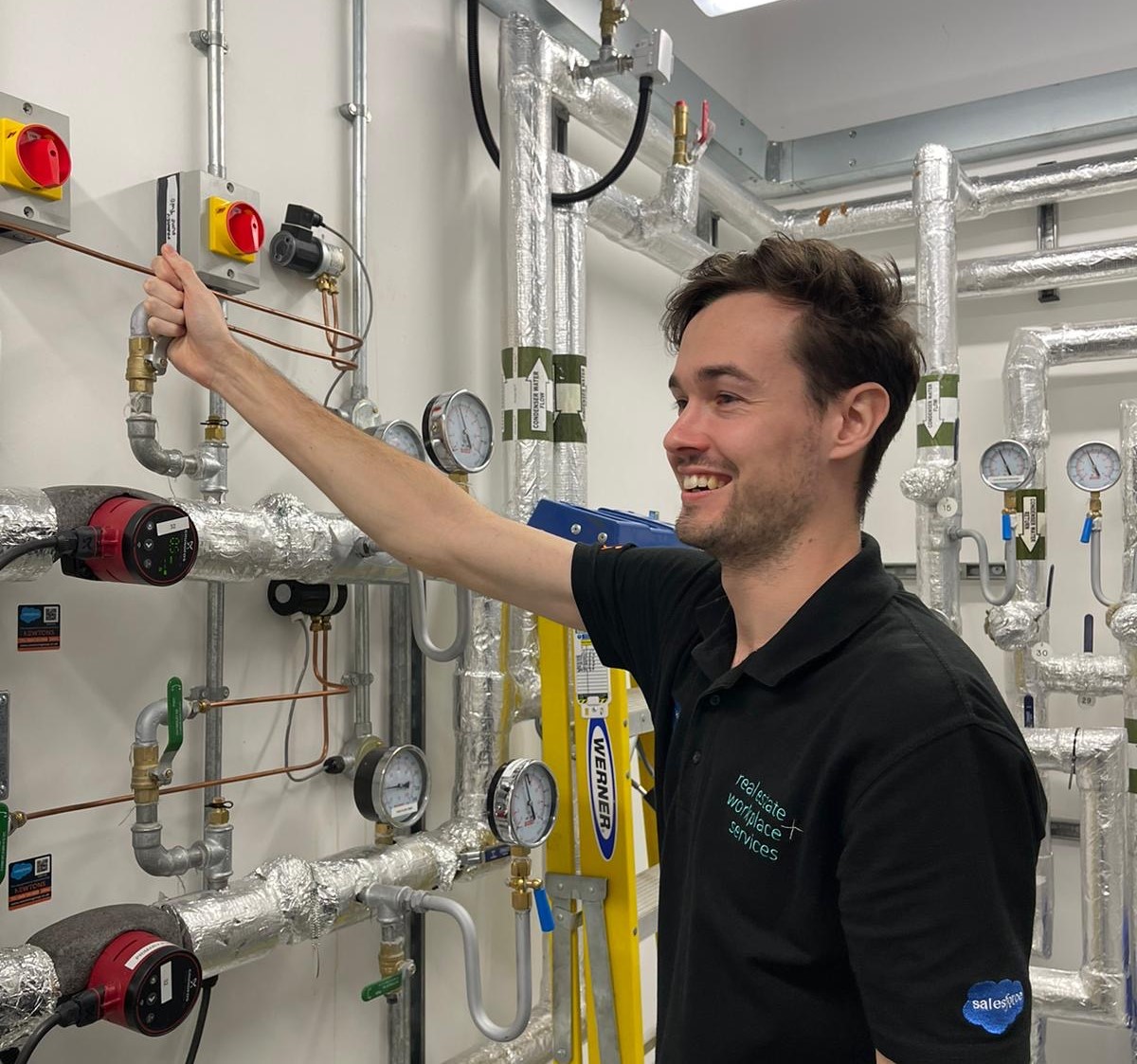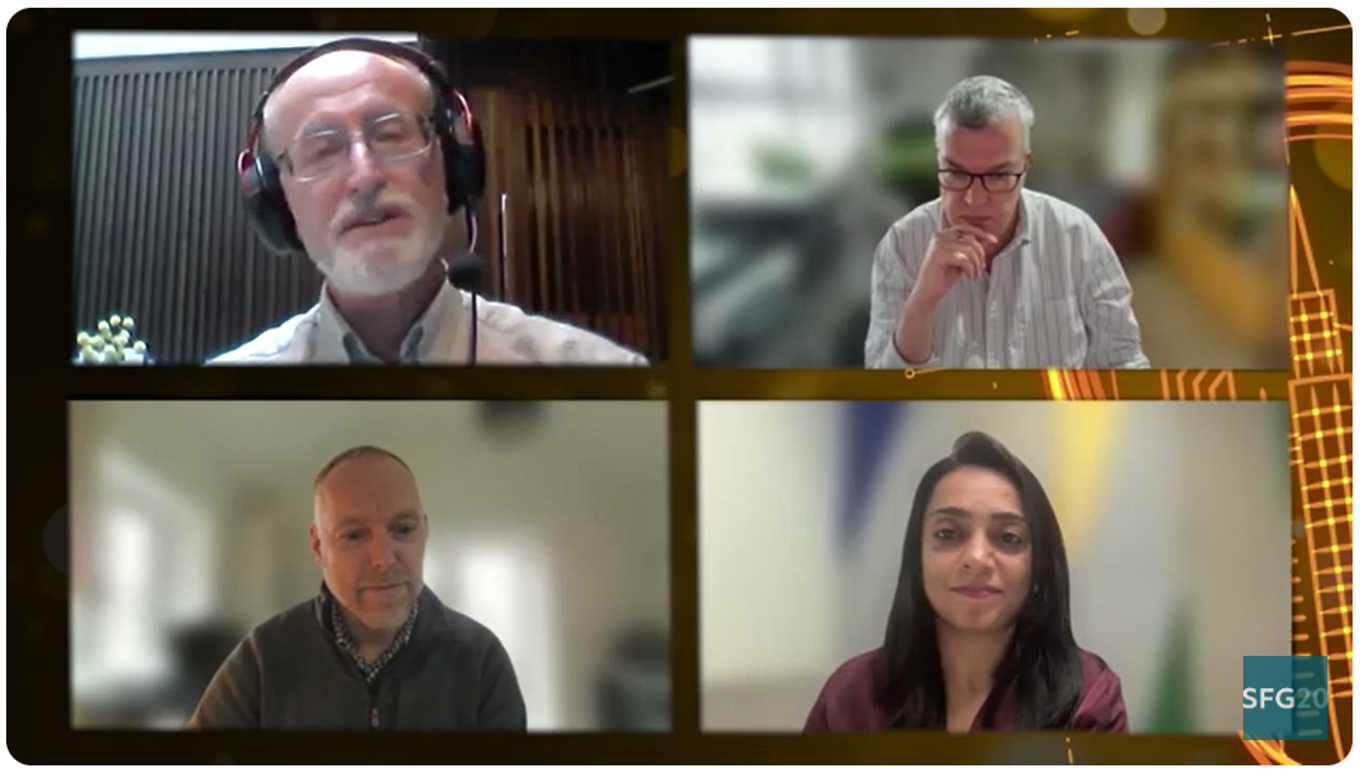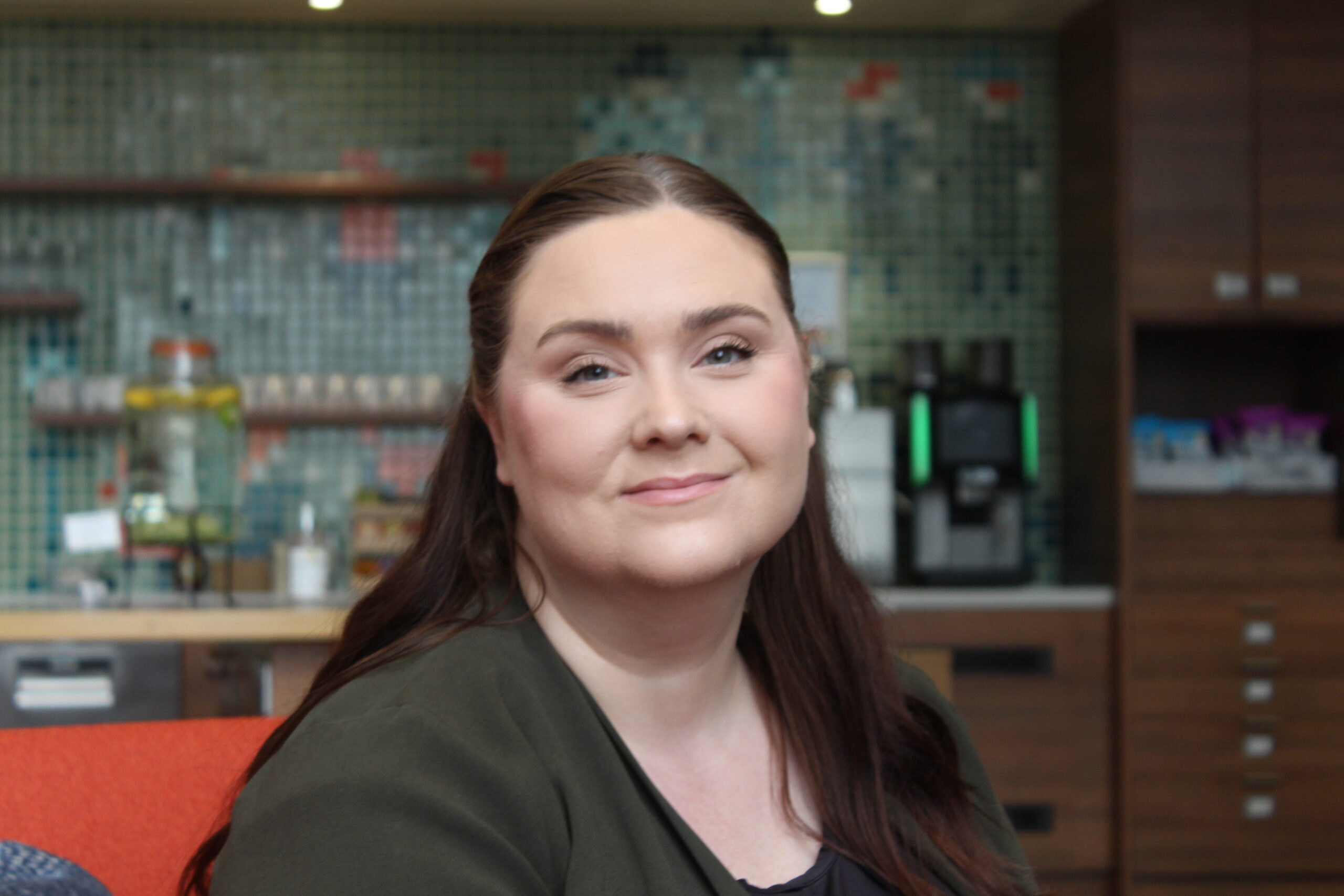In Pride month, Paul Courtney, Q3’s HR advisor, give a personal perspective on what being part of the LGBTQ+ family means to him.

Well, I didn’t see that coming…Being asked to write a blog about Pride month!
Whilst I am a PROUD member of the LGBTQ+ family, I tend to celebrate Pride in my own way. However, this year has made me think about what is important to me, especially with global conflicts in general, my position within Q3 (am I being the best advocate for our diverse workforce?) and to a certain extent, am I playing a role model to my nephews and nieces. They are now coming to an age where they are wondering why Uncle Paul doesn’t have a girlfriend or wife! This has made me reflect, and from this reflection, I feel I need to be out there more and challenge my comfort zone.
So, why it is important to celebrate Pride? Well, nearly 60 years ago, on the 28th of June 1969, a little bar called the Stonewall Inn in the Greenwich village of New York was raided by the New York Police Department. Thankfully, there were no fatalities nor serious injuries, but it was the first moment when people of this group stood up for themselves and fought against discrimination and oppression, not only for their rights and dignity but for ours in the modern world!
This is reason Pride month sits in the month of June every year!
Whilst this attack happened in New York all those years ago, the United Kingdom has seen subsequent attacks on the LGBTQ+ family. The most famous being in London 1999, where the LGBTQ+ family were attacked by someone setting off a nail bomb in the Admiral Duncan pub in Soho; and more recently in 2023, when two guys were attacked with a knife outside a gay bar!
Pride month enables many people to reflect and learn about how others have fought over the years and has paved the way for many to live more authentically.
More recently in April 2024, I went into Manchester with the ‘Grandads’ (that’s what we call them) from my friendship group, to celebrate their anniversary!
Over the years, I have heard many ‘Grandad’ stories, but this trip to Manchester allowed those stories to flow naturally, and it made me realise and appreciate, just how much they had endured as individuals and as a couple over the 45 years’ they had shared together. One of the Granddads even brought with him the receipt detailing the items they enjoyed on their first date at a Chinese restaurant! Whilst this was lovely, I heard stories, of how in the late 70’s they had bricks thrown through their window, their businesses being attacked, living through the HIV/AIDS decades, and more hurting, their families’ lack of acceptance. Love always wins! They did in the end!
Hearing their stories made me step back and this reflect and made me want to write this blog to explain why Pride month is as relevant in 2024 as it was then!
Did you know?
- Loving someone of the same sex is still illegal in 67 countries!
- LGBTQ+ youths are 8.4 time likely to attempt suicide than other LGBTQ+ youths whose parents has accepted them and their identity.
- 29% of LGBTQ+ youth that are homeless are victims of human trafficking.
- Almost one in five LGBTQ+ staff (18%) have been the target of negative comments or conduct from work colleagues because they’re LGBTQ+.
- Two-thirds (64%) of LGBTQ+ people had experienced anti-LGBTQ+ violence or abuse.
I am sure you will agree that these facts are shocking, and it is a stark reminder that whilst I feel the UK is leading the way in creating an inclusive space for individuals to live authentically at home and at work, there is still a great amount of work that needs to be done.
At the start of this blog, I wrote that I would be stepping out of my comfort zone by attending more events this year, to raise awareness and support those that may be finding it hard to live how they want to live; and as such, I attended two events this weekend alone!
My first event was a Pride event. This was not the Pride events we all know about, such as, Manchester, London, or Brighton, but it was a local community event! The event didn’t have council backing (although they did close a few roads) or big brands sponsoring it. It was exactly what it said on the posters, with local businesses and residents all working together to put on a wonderful family day.
The whole event was filled with people that came from a range of ages, religions, faith, sexual orientations, that were there for one thing – to celebrate each other’s uniqueness, through demonstrating acceptance, valuing the diversity and LOVE.
The day soon passed quickly, with a range of activities and events, including the parade, face painting, dressing up, live singers and entertainers (Drag Queens and Kings!), food from around the world, and LOVE for each other.
The second event of the weekend was the creation of a podcast. The event was hosted by an old Gaydio Radio Presenter, Emma Goswell, and entitled ‘Coming Out Stories. It only took an hour to create this podcast, however, as with all events, sometimes you just don’t want it to stop!
In the podcast, Emma introduced a gentleman called Patrick, who moved to the UK from Barbados following abuse from people in his homeland. Surprisingly, he had a wonderful and supportive family, but as a family they also accepted that he needed to move away due to the harassment and persecution because of how he identified!
Following the podcast recording, Emma introduced her book that she had co-written called ‘Coming Out Stories.’ The booked is compilation through discussions/podcasts that Emma has conducted over the years as a LGBTQ+ advocate, radio presenter and journalist. The stories are not only from the UK, but from across the globe. What made this book so interesting, was that it was not just from the perspective of the person who was coming out, but also explores stories from others’ viewpoints, including parents, grandparents, work colleagues and bosses, and Church officials.
Listening to the stories from both sides, I found myself being emotional, because it took me back to my own coming-out experience, which I feared. Whilst mine was an OK-ish experience, that feeling of dread and fear of telling your parents came flooding back to me. From the stories I was hearing, it reminded me again why Pride is still just as important as in the past!
I would encourage anyone to download it onto their kindle or buy the book. You may know someone that may be struggling to tell you something, or not too sure how to handle a situation when someone is opening up to you. Whilst the book is certainly not a ‘How-to’ book, through reading it, it is hoped that you can help to support this person, so that they don’t become a statistic like those written about above! It is all about listening!
Learn more about Pride
Whilst June is classed as Pride month, it is worth remembering that Pride is just the ‘umbrella’ of the community. Throughout every year other events takes place to support those individuals from this community:
March – Bisexual Health Awareness Month
31st March – International Transgender Day of visibility
26th April – Lesbian Visibility Day
17th May – International Day Against Homophobia, Transphobia, and Biphobia
24th May – Pansexual and Panromantic Visibility Day
14th July – International Non-Binary People’s Day
23rd September – Celebrate Bisexual Day
1st December – World Aid Day
You will find throughout through the next couple of months many Pride events will be taking place up and down the country. My advice to you, not that you have taken the time to read this blog, is to go and have fun, these events are all about inclusivity and love for each other!
Many people, regardless of their sexual orientation, beliefs or religion will attend a Pride event, and if you haven’t, that’s okay… but maybe try one?
By attending a Pride event you become an ally of the LGBTQ+ movement, and that helps individuals in more way than you can ever imagine. Many people who are not part of the community walk away from the event with a better understanding of Pride. Here are some examples of what I mean:
- Becoming an ally can help your family, friends, and colleagues within their personal and professional lives, as you can support them in challenging homophobic or transphobic behaviour.
- Many events are attended by some great acts, however, look past the celebrities, and find community stalls, this will enable you to educate yourself in a range of LGBTQ+ matters enabling you to champion equality and diversity in all matters of life. Many of these stalls are community based, allowing you to learn about how different cultures are supporting the LGBTQ+ movement.
- Attending Pride helps you to learn about the history of the LGBTQ+ movement.
- It is a family event, especially the parade, so go along and watch it! Its FREE! What child or adult doesn’t love a bit of glitter and face paint!
During Pride events, you may find many businesses start to promote and advertise, to capitalise on the celebrations! This is called ‘Rainbow Washing’ which is the act of a business that promoting itself as a supporter of the LGBTQ+ community, by adding rainbows to their logos, selling items that ‘appear’ to support the community. Sadly, they have not demonstrated or conducted any substantive work to raising their standards for their own LGBTQ+ employees or helped events or charities to promote the causes in supporting this community. I would encourage you to research these companies – check out their inclusivity policies (what do they do for their own LGBTQ+ employees) or what attitudes they have demonstrated towards the community, before you spend your hard-earned money in celebrating this event.
If you are not able to attend a Pride event, why not sit back and relax with a good film or TV series:
Films:
- Moonlight
- Milk
- Paris is Burning
- Pride
- God’s own Country
- Holding the Man – my personal favourite – Make sure you have !
TV Programmes:
- Pose
- Schitts Creek
- It’s a Sin
- Killing Eve
As with all communities there may be many individuals who may rely on the good work and support of charities, and the LGTBQ+ community is no different. All charities need a lot of financial and practical support, and whilst financial support is always welcome, many charities struggle with volunteers dedicating their time to help raise funds or spreading the message of support that is out there!
Here are some non-profit organisations that you may wish to research or help support in your own way:
Terrence Higgins Trust – Home | Terrence Higgins Trust (tht.org.uk)
MindOut – MindOut | Mental Health Charity for LGBTQ community
Whilst the above are national charities, you may decide you may wish to find local charities to you to support. Here are a few:
The Out House – TheOutHouse
Mosaic LGBY+ Young Person’s Trust – Mosaic LGBT+ Young Persons’ Trust (mosaictrust.org.uk)
Switchboard – Brighton & Hove LGBT Switchboard
Q3 and Pride
You must be wondering what is Q3 Services doing to support our LGBTQ+ family?
At Q3 Services, we believe that we are showing our support for our LGBTQ+ employees, through:
- Constantly reviewing our policies to ensure everyone is included and treated fairly within all elements of their employee journey.
- Welcoming employees to play an active role in their career by offering opportunities to progress within the business.
- Providing free training through our learning platform iAMLearning.
- Incorporating natural language enabling employees to cite (he/she/they) how they wish to be addressed.
- Working with clients that support and share our own values and beliefs.
As we continue to grow, Q3 recognises that we could do more, and we would love to hear from you about how we can continue to evolve and support our fantastic and diverse workforce.
So, now we come to the part of my blog which is about my journey with Q3 Services, some 2 years into my role.
During my application and interview stage, I found the experience to be extremely easy with no intrusive questions and conducted professionally to really enable me to be genuine within my application and interview.
The interview was performed over Teams which meant I naturally had my camera on. Behind me is a print of myself (I know how diva-ish!) and printed in the top right-hand corner is a Rainbow flag. I was not scared to show who I was with my interviewer, Lucy Hayes (HR Director), In fact, the conversation was about who was on the print, not the rainbow flag! (Apparently, I looked like Sting!)
During the onboarding programme, I was introduced to a range of Directors, Operations Managers, Contracts Managers, and various employees. In many new situations, questions would naturally be asked about someone’s personal life, whether it is life in general, hobbies and of course sport; and for many people they will pause and ask themselves, “How am I going to navigate this question?” As always, I would always be my authentic self, and despite me only being 3-4 weeks into my induction (as I started in July 2022), when asked, I would simply respond with, ‘Oh, it was Brighton Pride’ or, ‘this weekend it’s Manchester Pride.’ This was because from the people that I had met in such a short space of time during my induction, I felt that Q3 Services’ outlook and attitude was that the business and leaders drove an inclusive culture to all their employees, which further enabled me to be open and express myself in the way that was me!
Within my day-to-day tasks, I would naturally attend meetings where I am respected to give my opinion or advice on the topic. I genuinely contribute this opinion because of the ability of Q3’s senior leaders to promote a positive culture that respects everyone’s individuality, whilst building the confidence of all employees. Through attending these meeting, I felt confident that this is genuine, as I was never rushed into answering, or brushed over, as they may feel my response was not relevant.
I have been trusted and supported in introducing various programmes, such as the apprenticeship programme, to help all employees to reach their career aspirations and develop themselves. Also, our mandatory training platform which was implemented to ensure all employees could understand and learn about the topics easily and freely.
Whilst I am writing this blog as a gay man and through Pride month, many may say ,“It is easy for me to support this community!” In fact, this is where my role starts because, yes, I can write about the LGBTQ+ community and support it more easily. However, I am a strong believer that through the promotion of this and other topics throughout the year, Q3 Services and I can ensure that no employee of Q3 is harassed or bullied because of how they identify, for example, through gender, sexual orientation, race, religion, disability, or sex.
I am extremely passionate and a strong believer that Q3 and I share a common goal – to enhance the employment experience, help individuals to thrive in their current role, and guide people in their career aspirations by offering new opportunities. More importantly, we will help everyone to live as the most authentic person they can, through challenging and stamping out any unprofessional, discriminative, and non-inclusive behaviour!

 Channel Islands
Channel Islands
